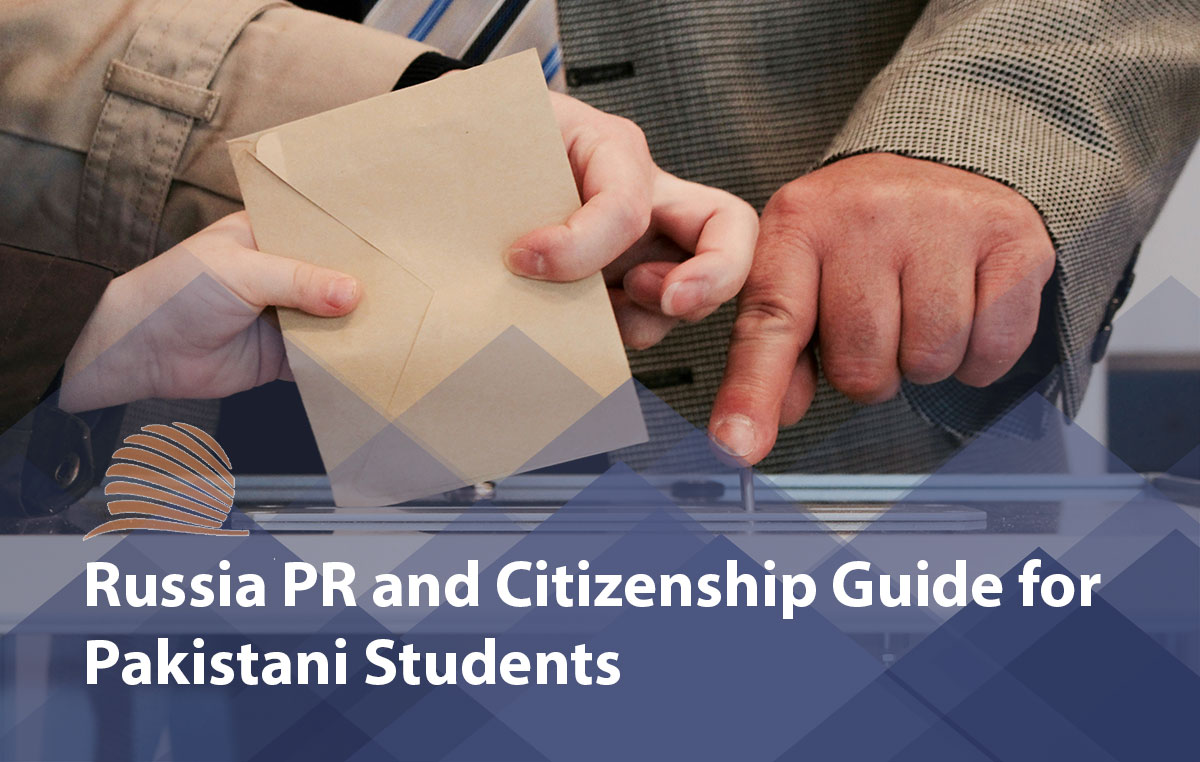Why Pakistani Students Choose Russia As Study Destination

Study abroad expert advice
Don't waste time! just fill the form to get help.
PR & Citizenship in Russia for Pakistani Students
Many Pakistani students who choose to study in Russia are not only interested in obtaining a degree but also in exploring long-term opportunities like permanent residency and citizenship. This article explains the processes, eligibility, and benefits of acquiring PR and Russian citizenship after studies.
Why Consider PR or Citizenship in Russia?
- Employment Opportunities: PR and citizenship allow graduates to work without restrictions, access higher-paying jobs, and benefit from Russian labor laws.
- Social Benefits: Access to healthcare, social security, and other welfare programs improve with PR and citizenship.
- Travel Benefits: Russian passport holders enjoy visa-free or visa-on-arrival access to many countries.
- Business Opportunities: Citizenship simplifies setting up businesses or investing in Russia.
- Family Benefits: Ability to sponsor family members for residency or citizenship.
Eligibility Criteria for Permanent Residency
Pakistani students can apply for permanent residency in Russia after fulfilling specific criteria:
- Completion of Higher Education in Russia: Graduates of Russian universities have a priority in PR applications.
- Temporary Residency: Usually, applicants must have held a temporary residence permit (TRP) for at least one year before applying for PR.
- Language Proficiency: Basic proficiency in Russian language, culture, and history is required (tested via an exam).
- No Criminal Record: Clean legal record and no outstanding legal issues.
- Financial Stability: Proof of stable income or financial means to support oneself.
The PR Application Process
- Obtain Temporary Residence Permit (TRP):
Usually granted for 3 years, a TRP allows living and working in Russia temporarily. Some graduates apply directly for TRP based on their education. - Fulfill Residency Requirements:
The applicant must reside continuously in Russia for at least 1 year on TRP before applying for PR. - Submit PR Application:
File the PR application at the local migration office (GUVM/MVD) with all required documents including education certificates, language test results, and financial proof. - Background Checks & Interview:
The authorities will conduct security and background checks. Applicants may be interviewed. - Receive Permanent Residency:
Once approved, the applicant gets a permanent residence card, valid indefinitely but requires renewal every 5 years.
Applying for Russian Citizenship
After holding permanent residency for 5 years, one can apply for Russian citizenship, with some exceptions allowing faster paths:
- Graduates of Russian Universities: May apply for citizenship after 3 years of residence instead of 5.
- Marriage to a Russian citizen: May reduce the timeline.
Citizenship Application Process
- Prepare Documents:
Passport, PR card, education certificates, language proficiency certificate, proof of income, and others. - Submit Application:
Application is submitted to the Federal Migration Service or local office. - Pass Russian Language & History Test:
Demonstrating knowledge of the language and country’s history is mandatory. - Background Checks:
Authorities conduct checks on criminal record and security. - Decision & Oath:
Once approved, the applicant takes an oath of allegiance to Russia and receives citizenship.
Benefits of Russian Citizenship
- Full political rights including voting.
- Unrestricted employment and residence anywhere in Russia.
- Access to social services and benefits at par with native citizens.
- Simplified travel with a powerful passport.
- Ability to sponsor family members easily.
Important Considerations
- Dual Citizenship: Russia permits dual citizenship but requires you to inform migration authorities. Pakistan also allows dual nationality in limited cases; students should consult legal advice.
- Military Service: Male citizens between ages 18-27 may be required to serve in the military; some exemptions exist for students or specific categories.
- Legal Assistance: Navigating immigration laws can be complex; consulting with migration experts or university legal offices is recommended.
Summary Table: Pathway from Student to Russian Citizen
Stage | Requirements | Typical Duration |
Student Visa | Admission to Russian university | Duration of course |
Temporary Residence Permit | Graduation + application to migration office | Up to 3 years |
Permanent Residency | 1 year residency on TRP + language proficiency | 1 year after TRP |
Citizenship Application | 3-5 years residency on PR + language test | 3-5 years |
Final Thoughts
For Pakistani students, Russia offers promising pathways beyond education. Achieving permanent residency or citizenship opens doors to career growth, social security, and the opportunity to build a long-term life in Russia. Careful planning, fulfilling requirements, and seeking guidance can help make this transition smooth and successful.














